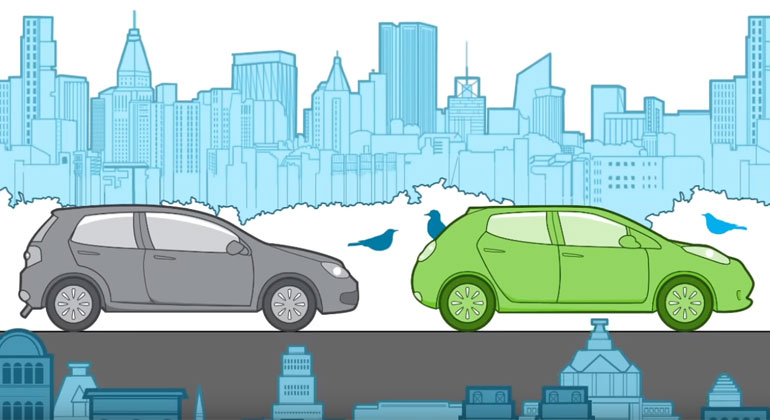Gasoline vs Electric – Who Wins on Lifetime Global Warming Emissions?
I’m excited to introduce our newest analysis on electric cars, titled: Cleaner Cars from Cradle to Grave: How Electric Cars Beat Gasoline Cars in Lifetime Global Warming Emissions. After years of mixed messages on whether electric vehicles (EVs) really are better for the environment, we’re pleased to provide one of the most comprehensive answers to date (sneak peek: yes, they’re cleaner by 50 percent). Here’s what we’ve found…
- From cradle to grave, battery-electric vehicles are cleaner. On average, battery electric vehicles (BEVs) representative of those sold today produce less than half the global warming emissions of comparable gasoline-powered vehicles, even when the higher emissions associated with BEV manufacturing are taken into consideration. Based on modeling of the two most popular BEVs available today and the regions where they are currently being sold, excess manufacturing emissions are offset within 6 to 16 months of driving.
- EVs are now driving cleaner than ever before. Driving an average EV results in lower global warming emissions than driving a gasoline car that gets 50 miles per gallon (MPG) in regions covering two-thirds of the U.S. population, up from 45 percent in our 2012 report. Based on where EVs are being sold in the United States today, the average EV driving on electricity produces global warming emissions equal to a gasoline vehicle with a 68 MPG fuel economy rating.
- EVs will become even cleaner as more electricity is generated by renewable sources of energy. In a grid composed of 80 percent renewable electricity, manufacturing a BEV will result in an over 25 percent reduction in emissions from manufacturing and an 84 percent reduction in emissions from driving—for an overall reduction of more than 60 percent (compared with a BEV manufactured and driven today).
Global warming emissions from driving
Although a BEV has no tailpipe emissions, the total global warming emissions from operating it are not insignificant; they depend on the sources of the electricity that charge the vehicle’s batteries and on the efficiency of the vehicle. We estimated the global warming emissions from electricity consumption in the 26 “grid regions” of the United States—representing the group of power plants that together serve as each region’s primary source of electricity—and we rated each region based on how charging and using an EV there compares with driving a gasoline vehicle.








